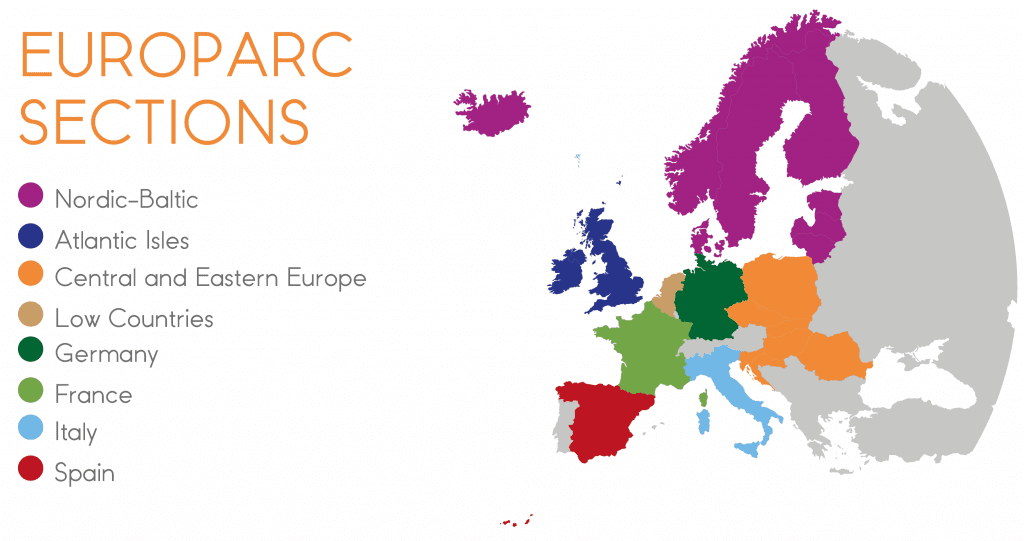European Habitats Forum meeting in Brussels
EUROPARC attended in Brussels the EHF – European Habitats Forum meeting, which gathered representatives from several European Environment NGOs who are following closely the development and implementation of the EU Biodiversity Strategy.
A very fruitful meeting, that counted also with the presence of Stefan Leiner and Nicola Notaro from the European Commission – DG Environment gave the opportunity to address and discuss some priorities that concern from close Protected Areas across Europe. Among those:
- Fitness Check of Nature Directives
with a political decision still expected by the college of Commissioners. (The delay of the process seems to be unjustified at this stage. But after the meeting EUROPARC recently had with the Commissioner Vella, we remain confident and expect a positive decision by the end of the year).
- Agriculture
with the need to improve the sustainability of the CAP and start working towards a substantial reform for post 2020; (in 2017 there will be a mid term assessment).
- Invasive Alien Species
as the second main driver of biodiversity loss after habitats degradation, will have new measures in place.
- Natura 2000 management and financing
with still lot of progresses to be made for the successful achievement of the EU targets.
- Green Infrastructures (GI)
with the development of a Trans European Network for GI in Europe.
- LIFE programme
with more funding for projects being allocated for 2017.
For more information, please contact Federico Minozzi f.minozzi @ europarc.org
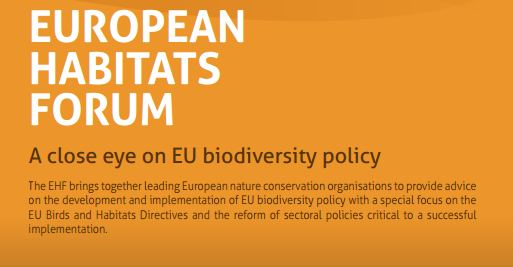
Learn more about the EHF here.
Charter Verifiers Training 2016
Verifiers play a crucial role in the process of the European Charter for Sustainable Tourism in Protected Areas: they assess and check the application and verify the veracity of the strategy and action plan being proposed.
In 2016, following the recent updates on the Charter methodology – which included a revised structure of the Charter, with new principles and key topics – EUROPARC organised a new training for Verifiers in November. During 2 intense workshop days that took place in Gut Siggen (Germany), in the Alfred Toepfer Stiftung Seminar Center. 20 participants learned about the Charter Process and worked through the new materials.
Photos of the Verifiers Training are available here.
Being a Charter Verifier
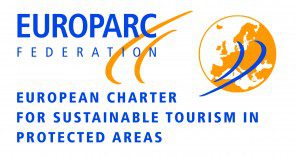 The European Charter for Sustainable Tourism in Protected Areas is a practical management tool that enables Protected Areas to develop tourism sustainably. Protected Areas applying to become a Sustainable Destination submit a completed application form, which includes the Sustainable Tourism Strategy and Action Plan, that will be checked by an appointed verifier. Following, the appointed verifier will visit the area and check if actions indicated have taken place and give advice and experience to bear to an individual park.
The European Charter for Sustainable Tourism in Protected Areas is a practical management tool that enables Protected Areas to develop tourism sustainably. Protected Areas applying to become a Sustainable Destination submit a completed application form, which includes the Sustainable Tourism Strategy and Action Plan, that will be checked by an appointed verifier. Following, the appointed verifier will visit the area and check if actions indicated have taken place and give advice and experience to bear to an individual park.
The objective of the visit is to discuss with the Protected Area’s authorities and all the other stakeholders about the major issues of tourism and to see how the entire territory addresses them,
said Jovan Ljiljak, who is one of the new trained Charter Verifiers, adding thet “(the verifier) is basically the correspondent between EUROPARC Federation and the Protected Area.”
Further, the verifier recommends the future inclusion of a park in the Charter Network through a report that will then be assessed by the Evaluation Committee.
Verifiers Training 2016
Verifiers are experts in sustainable tourism and protected areas and may not specifically, “represent” the EUROPARC Federation through their verification visit but they certainly reflect its values and seek to secure maintenance of the standards that are expected of a charter area.
The previous Verifiers Training was organised in 2011, since then the Charter Network has been expanding and the methodology evolved, hence why the need for a new training in 2016.
For the first time, EUROPARC joined in the same training new verifiers, experienced verifiers and members of the Evaluation Committee. “It was a good opportunity to share experiences and get some important tips”, said Jovan Ljiljak.
During the Training, participants analysed in detail the Charter application and re-application forms, with the guidance of the Charter Evaluation Committee.

Josep Maria Prats and Richard Denman, members of the Charter Evaluation Committee, explaining the reporting process.
Knowledge was put into practice with different dynamic activities which included identification of all the stakeholders involved in the Charter process; simulation of visits and various activities to improve communication skills.
The verification visits for 2017 are expected to start in April 2017 and with this Verifiers Training, EUROPARC seeks to harmonise the approaches and interpretation of the questions;


Transboudary Parks Awards 2016
In 2016, two Transboundary Parks renewed their commitment of cooperating across borders. At EUROPARC Conference 2016, Krkonoše National Park (Czech Republic) and Karkonosze National Park (Poland) were re-awarded, along with Oulanka National Park (Finland) and Paanajärvi National Park (Russia).
EUROPARC’s Transboundary Parks Programme initiative is a special verification and certification system that aims to promote and facilitate transboundary cooperation between European Protected Areas. There are four elements to the system:
- the unique EUROPARC Basic Standards for transfrontier cooperation,
- a verification process carried out by external verifiers,
- the formal certification as a “EUROPARC Transboundary Area” if the application was successful and
- the renewal of the Certificate every five years.
Transboundary Parks Awards 2016
Krkonoše-Karkonosze Transboundary Parks (CZ/PL)
Krkonoše National Park and Karkonosze National Park have been cooperating since 2004, when they were awarded the Transboundary Parks Certificate for the 1st time. After that, they renewed their commitment in 2011 and repeated this year. Since 2013 – when the Czech Park celebrated its 50th anniversary – Parks agreed on having a joint logo. Now, across borders, the same image is reinforced in Visitor’s mind, so they understand how important is the cooperation between the Parks.
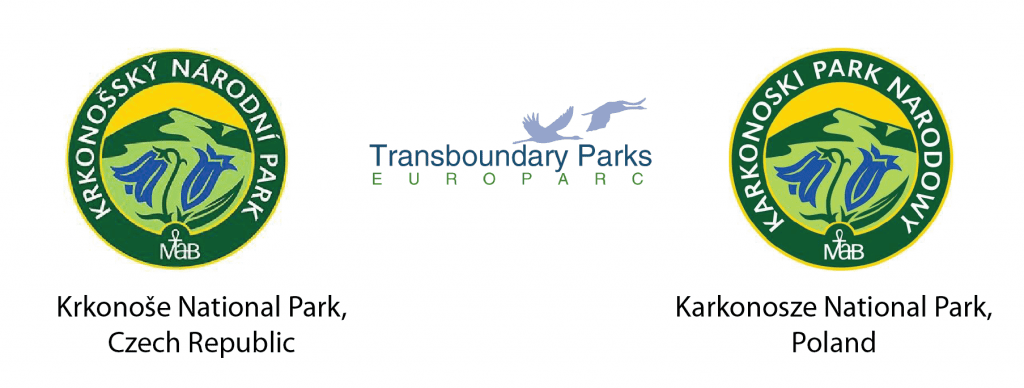
However, they cooperation goes further beyond branding: Parks have been working together in several projects, such as:
Management of natural resources
- systematic monitoring of birds, bats, butterflies and red deers (2013-2015)
- Safe Krkonose Mts.I and II – training of both NPs staff (rangers, foresters, educators, etc) and Identification of so called trauma-points in field – i.e. places of importance for mountain rescues
- GIS: harmonising the GIS layers that differed in both countries (2010-2014)
Education & Information
- cross-border educational programmes (2013-2015)
- joint education of KRNAP and KPN staff, including language skills, short-term internships in the partner park, annual meetings
- Campaign “Same mountains, same forests” (2011-2012)
Tourism
- publication of visitors’ rules for both parks and joint logo
- tourism infrastructure – reconstruction of monastery garden in Vrchlabi (CZ) for educational purposes and creation of a new environment education center in Karpacz (PL) (2010-2013)
- Barrier-free Krkonose Mts. Identification of trails in field, accessible for handicapped people (including wheel-chair bounds)
The Parks have acknowledged that working together brings mutual benefits, such as a broader view of the territory, through the regular sharing of information, experience and views; better access to EU fundings (especially INTERREG); improved coordination in practical management of natural ecosystems; improved language skills and better communication.
Oulanka-Paanajärvi Transboundary Parks (FI/RU)
The cooperation between Oulanka and Paanajärvi National Parks dates back to the early 90’s. Their already close cooperation was then again boosted by the two year Interreg project “Oulanka-Paanajärvi – wilderness, experiences and well-being”, which they ran from 2005 onwards. The aim of the project was to improve the preconditions of nature-based tourism by developing the services of the park pair. Also in 2005, both parks became members of the EUROPARC TransParcNet by receiving the Transboundary Certificate for their model cooperation across borders. The twin parks of Oulanka and Paanajärvi National Parks form an internationally unique wilderness area and an important destination for nature-oriented tourism.
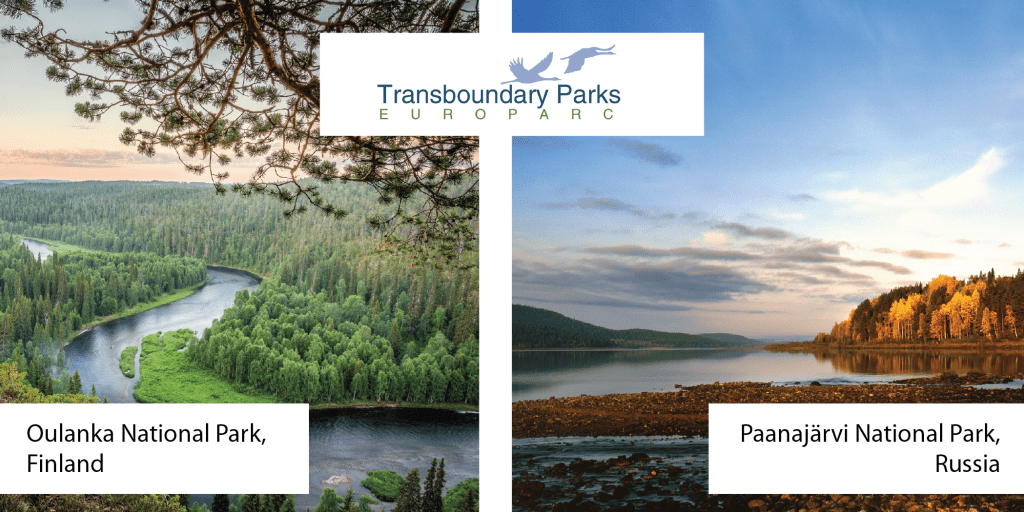
The projects they have been developing together focus on:
Management of natural resources
- sustainable management of trout fisheries for the transborder Oulanka river system (2013-2014)
- sustainable management of salmonid fisheries (2015-2016)
Ecotourism
- development and promotion of sustainable and high-quality nature and culture tourism, and improvement of communication (2012-2014)
- investments on infrastructures and facilities at both National Parks
Parks acknowledged that participating in protected area management outside one’s own country “increases understanding of international character of nature protection work; and, at personal level, increases the feeling of partnership with colleagues across the border”.
For more information about the cooperation between Oulanka-Paanajärvi can be found here.
Partnership agreement between EUROPARC and Sections
Dominique Leveque, President of EUROPARC French Section signing the Partnership Agreement between EUROPARC and the Section, at EUROPARC General Assembly 2016, Switzerland, 18.10.2016 © EUROPARC Federation
The EUROPARC Federation was built on the idea to further the conservation of Europe’s nature through international cooperation. An important part of the Federation are the regional and national sections, created at the request of members, to address European policy and regional issues relevant to Protected Areas. EUROPARC Sections translate, help, improve and achieve the strategy and the agreed goals and objectives of EUROPARC Federation.
Currently, EUROPARC has eight regional and national sections that fulfill many of the EUROPARC Federations’ aims, whilst reflecting the priorities and characteristics of the areas they cover. They undertake a huge volume of work to a high professional standard and both support and stimulate the work of the Federation as a whole.
As Nature knows no boundaries, EUROPARC believes in the principle that the future protection and conservation of nature is achieved through international cooperation.
Sections agreement
As EUROPARC has grown and developed as a network, the time is now, to renew how our organisation works and to ensure it remains relevant to European issues. Importantly though, it remains to serve its members, who manage all aspects of European protected areas through international cooperation. The idea upon which EUROPARC, now the largest protected area network in Europe, was founded is as relevant today as it was over 40 years ago.
Therefore, at the EUROPARC General Assembly 2016, a historical partnership agreement was signed between EUROPARC and each Section. Together, we want to ensure that EUROPARC is the strong and united voice for all nature and landscape Protected Areas.
The agreement signed underlines and endorses the collective commitment to find new ways of working together within our organisation on behalf of our members. A common set of principles of cooperation was agreed and Sections committed to support the Federation pursuing its vision of a Sustainable Nature, Valued by People. With this agreement, all parts of the Federation commit to actively contribute to the implementation of the EUROPARC goals, priorities and strategy to accomplish that vision.
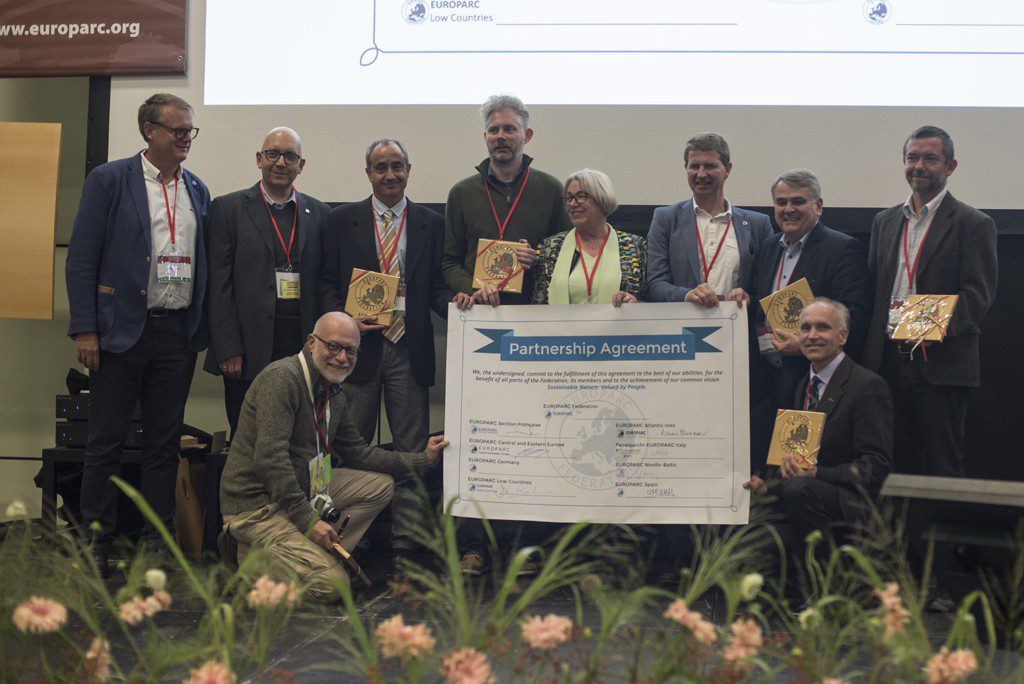
Signing of EUROPARC and Sections agreement at EUROPARC Conference 2016, Parc Jura vaudois, Switzerland © EUROPARC Federation
At the Signing Ceremony, each Section representative was offered the “EUROPARC Official Section” plaque, which were generously offered by the Bavarian Forest National Park (Germany). EUROPARC expresses its profound gratitude to the Bavarian Forest NP Administration for the beautiful wooden plaques handmade, that will now be proudly displayed at the entrance of EUROPARC Official Sections.
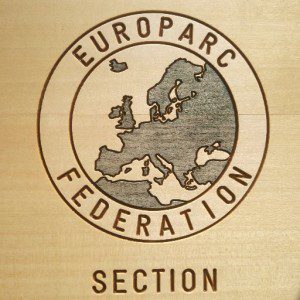
EUROPARC Sections Plaque
Together, we will seek to realise a stronger, unifying, European network organisation that is better placed to respond to current and future challenges facing Europe’s nature.
Sections Report 2016
Olaf Holm, Sections’ Representative at EUROPARC Council, introduced the Sections’ Report and the Sections Agreement to EUROPARC members at the General Assembly 2016.
Download the presentation here.
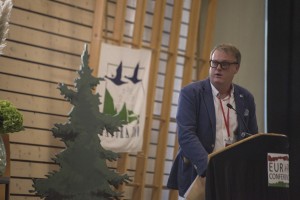
Olaf Holm, Section Representative at EUROPARC Council, introducing the Sections Report at EUROPARC General Assembly 2016, Switzerland, 18.10.2016 © EUROPARC Federation
